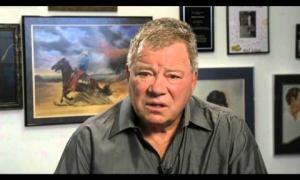Since the first Leadership Communication Days meeting nine years ago, every gathering has been off the record. The problems in executive communication are sensitive (so are the successes, actually), and the people involved are powerful. So what's said at Leadership Communication Days, stays.
Oh, I guess I can tell you a couple of things that happened at our most recent Leadership Communication Days, last week:
I can tell you the most common phrase uttered, in the difficulty of explaining byzantine exec comms problems: "Long story short …"
The second-most common phrase uttered, usually halfway through a story: "You know where this is going …"
The best phrase uttered: "Pencil-fuck it." Here it is in a sentence: "Don't send your draft to the HR director, or he'll pencil-fuck it."
The best complete sentence uttered: "A leader is one sentence." (Lincoln ended slavery. Roosevelt got us through the Depression. Reagan ended the Cold War.) Shared by the unofficial dean of Leadership Communication Days, AARP's CEO comms wizard Boe Workman. He was paraphrasing Clare Boothe Luce, who once told John Kennedy, "a great man is one sentence," and asked Kennedy what his sentence would be.
One tip, shared by a participant, seconded by another and appreciated by the rest: Read the speech script out loud to your speaker. She or he will hear it the way it's meant to be said (and be less likely to pencil-fuck it).
The very purpose of a noble communication specialty. Looking for a way to sum the meeting up at the end, I idly jotted down during the two days, the ends these executive communication pros were asking for help in achieving:
Humanizing leaders to employees and other constituents.
Helping executives understand and acknowledge the daily realities of employees and customers.
Helping leaders see and express the connections between their work and their selves.
Helping people express their authentic selves.
Helping leaders develop new and socially useful ideas.
Explaining complex and impersonal institutions to the society they influence (and vice versa).
Putting faces on institutions.
Making communications more interesting, making complicated concepts more understandable.
Making meaning.
And taking courageous stands against pencil-fucking, in all its forms.
Now, lord knows these exec comms pros weren't accomplishing all that in a day. Helping institutions communicate is hard, and helping them communicate humanely is even harder.
And perhaps these exec comms pros also have more nefarious strategies in mind as well, but if they do, they didn't talk about them here.
So at the end of this meeting—as at the end of all the Leadership Communication Days meetings we've had, and, I trust all that we will ever have—I felt good, having convened good people dedicated to helping one another grope toward really worthy goals.
And with a lot of laughs along the way, and only one or two tears.
And that's all I can tell you. If you want to know more, you'll have to attend the next meeting of Leadership Communication Days, dates and location to be released soon. —DM

